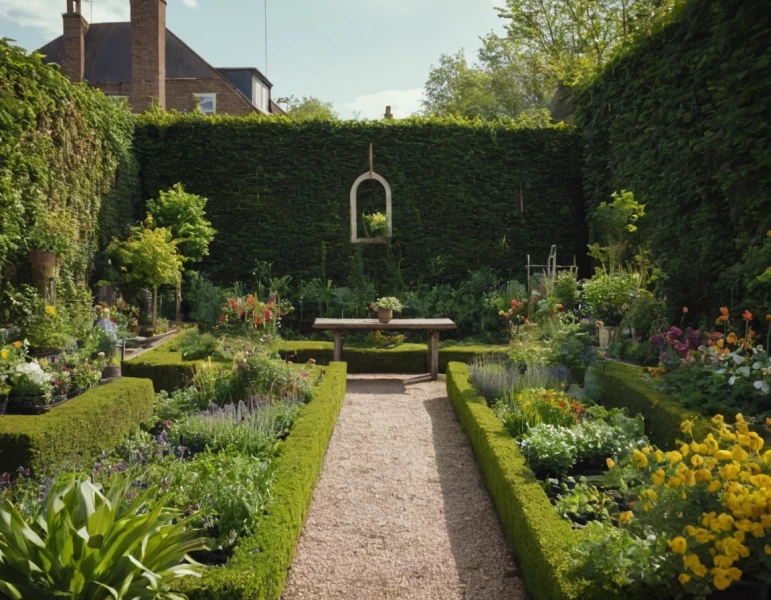Educa UNIVERSITY|ART AND ARCHITECTURE
Urban Garden: Your Green Corner in the City
Related Masters
Urban Garden: Your Green Corner in the City
I am Amadeo Pérez. Throughout my life, I have seen how the idea of the urban garden has gone from being something rare to become an authentic green revolution in the middle of a concrete jungle. I'm going to tell you everything I know about urban gardens: what they are, why they're so popular and how you can start your own green oasis. So sit back, open your eyes wide and get ready to take the first step towards a more sustainable and healthy life.
What is an Urban Garden?
An urban garden is basically a space within the city where fresh food is grown. Balconies, terraces, patios and even vertical walls are used to plant vegetables, herbs and even fruits, allowing you to enjoy a small agricultural production without leaving your home. Yes, you read that right. You don't need a field or tons of soil; with creativity and the right techniques, you can have your own urban vegetable garden in a small space.

Urban vegetable gardens have different modalities depending on the space available and the irrigation system you choose. From gardens in traditional planters to vertical gardens that take advantage of walls, there are endless options that adapt to the amount of light and space you have available.
Benefits of Having an Urban Garden
1. Reduces Heat and Improves the Environment
Plants help reduce heat in the environment and improve air quality, which in cities as polluted as ours is a blessing. In addition, urban gardens provide a touch of freshness that oxygenates the environment and counteracts the greenhouse effect.
2. Fresh Food and No Pesticides
Imagine the pleasure of eating something you've grown yourself, without worrying about the chemicals you sometimes find in supermarket produce. By harvesting at home, you get fresh vegetables and control what you add to the soil, ensuring exceptional flavor and quality.
3. Connection with Nature and Stress Reduction
An urban garden not only improves your diet; it also has a positive impact on your well-being. Plants and gardening help reduce stress and help keep you connected with nature, something we tend to lose living in cities.
Steps to Start Your Own Urban Garden
Step 1: Choose the Place
Find a place with good sunlight and where the plants can grow without a problem. If you have a sunny balcony, perfect! And if you only have a small window, don't worry; there are indoor growing options, such as vertical gardens or pots on shelves.
Step 2: Select the Substrate and Compost
Choose a good substrate that has drainage capacity to prevent the roots from rotting. Mixing soil with compost or using specific substrates for urban gardening is an excellent idea. This way, your plants will have the necessary nutrients to grow strong>strong and healthy.
Step 3: The Right Watering System
Here are some options: drip irrigation, which saves water and avoids waterlogging, or watering cans, ideal if you have a garden in small pots. Another technique is exudation irrigation, which keeps a constant flow of water in the soil.
Step 4: Choose the Right Plants
Start with fast-growing vegetables, such as lettuce, spinach and carrots. These types of plants will give you quick harvests and keep your motivation high. Aromatic herbs such as mint, basil and parsley are great for beginners.
Urban Garden Maintenance
Watering and Pest Control
Good watering is key, but make sure you don't overdo it. For pest control, you can use natural solutions such as potassium soap or neem oil, which are effective and safe for health. It is essential to do a weekly check-up to make sure your plants are healthy and growing.
Regular Pruning and Fertilizing
Each plant needs different types of care. Pruning allows for more orderly and vigorous growth, and fertilizing replenishes nutrients. You can use organic compost to keep the soil fertile and avoid chemicals that can damage the biodiversity of the soil
.
Faculties
Trainings
The faculties embrace diverse academic disciplines and fields of study, opening doors to new perspectives and exploring different spheres of wisdom in a constantly evolving world.














